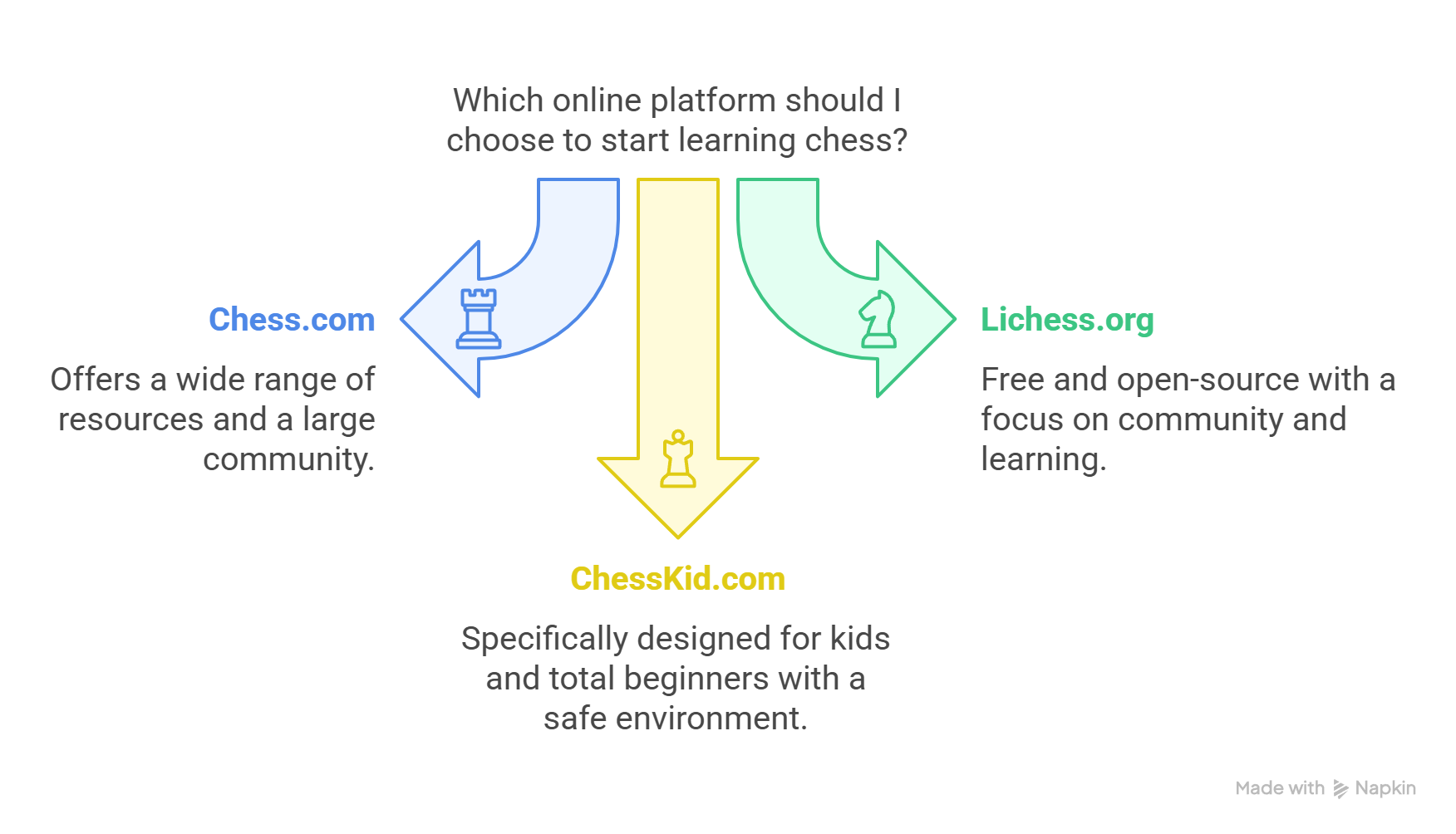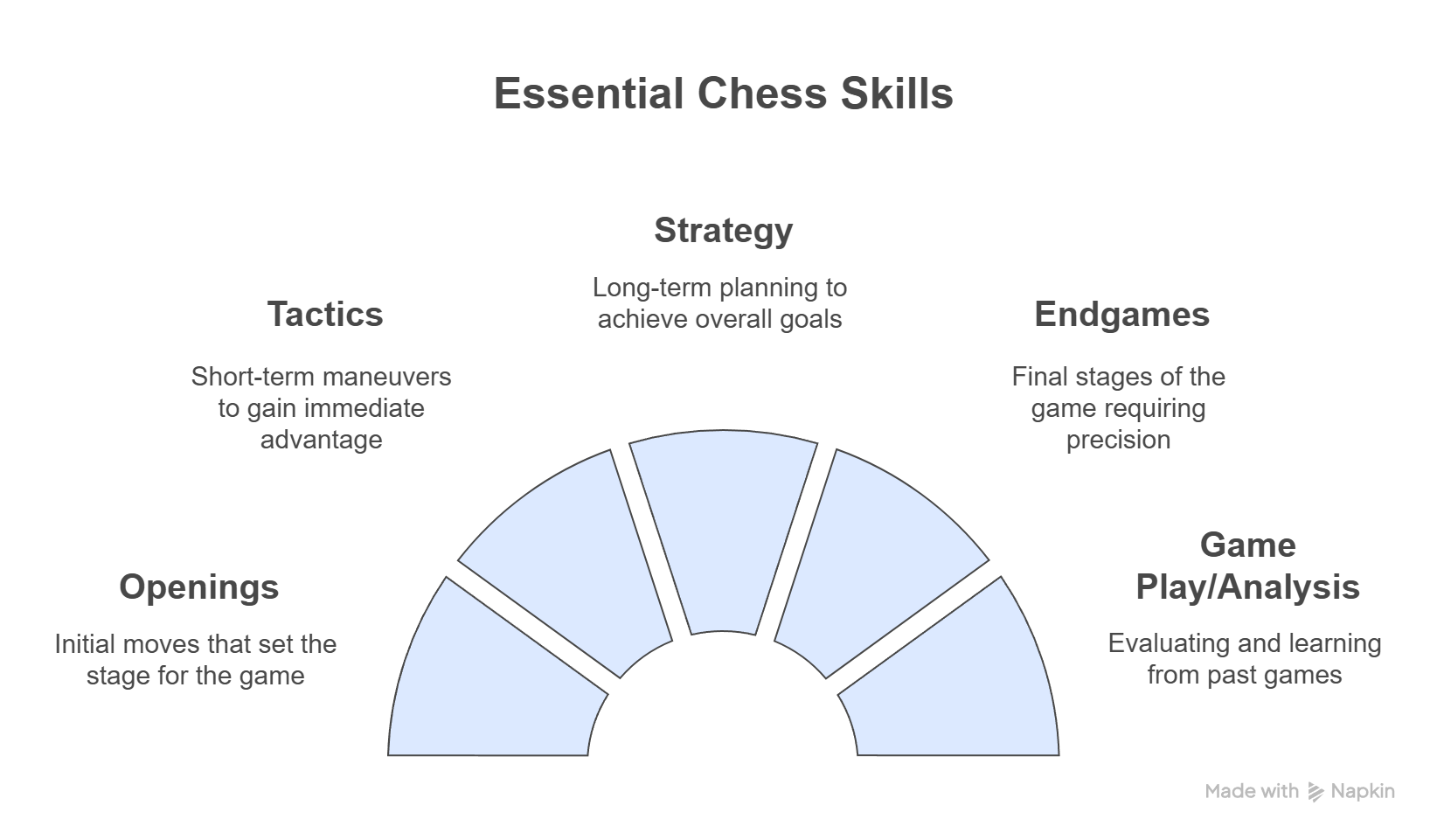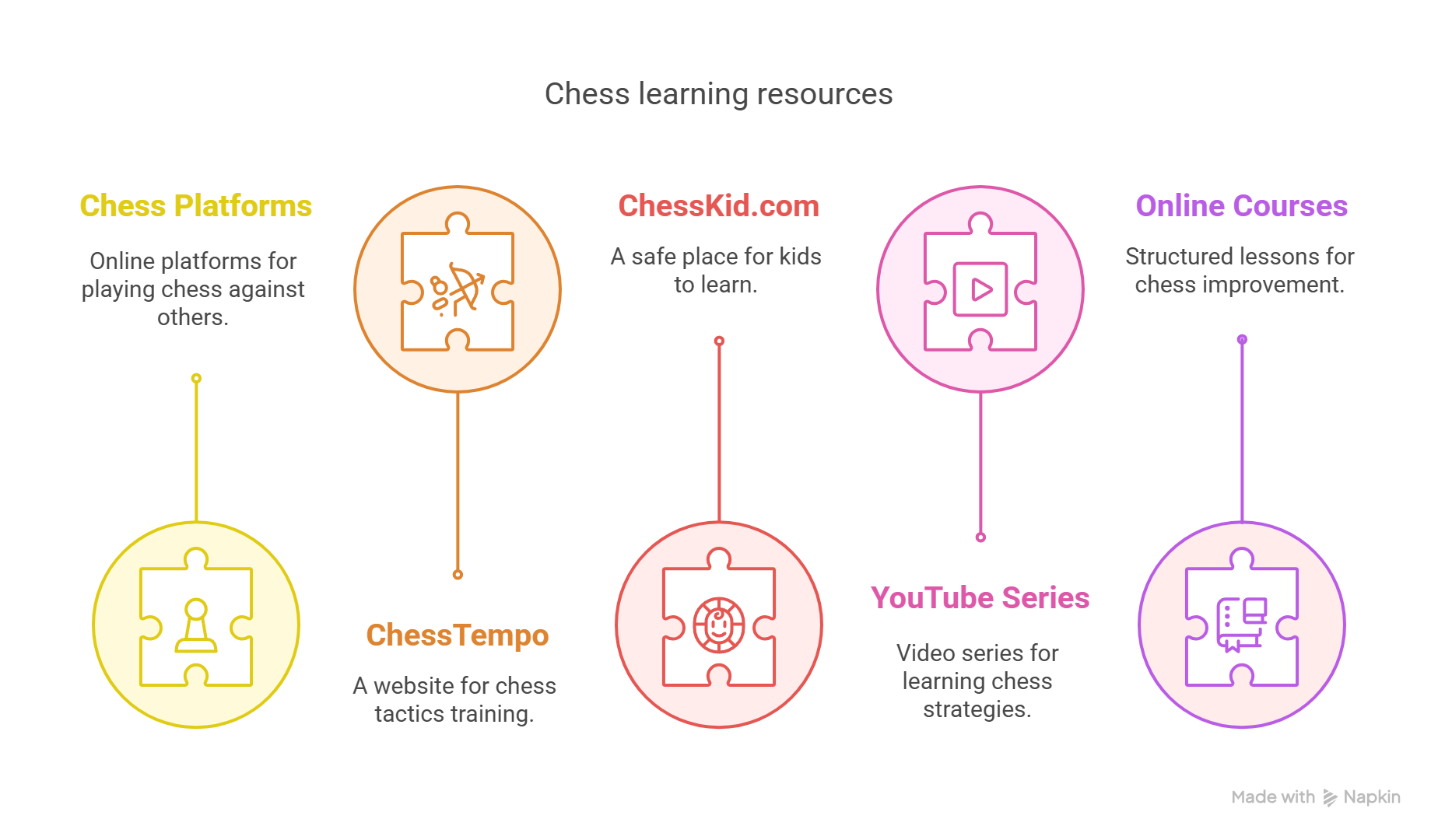Introduction
Can chess really be self-taught? It’s a question many aspiring players ask themselves when they first become curious about the game. With a sea of books, videos, and online tools available, the idea of learning chess independently feels more possible than ever. Still, there’s a lingering belief that you need a coach to truly improve – or at least to reach a high level.
This assumption isn’t without merit. A good coach can speed up the learning process, offer personalized feedback, and guide your development. But that doesn’t mean coaching is the only path to success.
The truth is: yes, chess can absolutely be self-taught. With the right mindset, consistent practice, and the use of quality resources, you can make real progress on your own. Whether you’re a beginner learning how the pieces move or a club player aiming to climb the rating ladder, a structured self-study approach can take you surprisingly far.

Why Many Players Choose to Self-Teach
One of the biggest reasons players opt to teach themselves chess is the flexibility it offers. Self-study allows you to learn at your own pace, on your own schedule. Whether you’re squeezing in tactics puzzles on your lunch break or watching endgame videos late at night, you’re in full control of how and when you study.
Another major factor is cost. While private lessons can be incredibly helpful, they can also be expensive – especially on a weekly basis. Self-taught players often find that many top-tier resources are free or low-cost, making improvement accessible without breaking the bank.
And perhaps most inspiring of all: many successful players have been self-taught, at least in their early years. Some even reached master level before working with a coach. Their stories serve as a reminder that with enough passion and commitment, it’s possible to build a strong foundation on your own.
Learn the Basics
Before anything else, make sure you have a solid grasp of the fundamentals. This includes understanding the rules, how each piece moves, how to deliver simple checkmates like king and rook vs. king, and recognizing basic check and checkmate patterns.
Suggested platforms for beginners:
- Chess.com
- Lichess.org
- ChessKid.com – great for kids and total beginners

Practice Regularly
Playing games regularly is one of the fastest ways to improve. You can play against real opponents online, challenge your friends, or test your skills against computer programs of varying strengths.
Consistency is key – even just a few games a day can make a big difference over time.
Analyze Your Games
After each game, don’t just move on. Review what went right and what went wrong. This reflection is where true learning happens.
You can:
- Use online analysis tools to spot blunders and missed tactics
- Try to understand why a move was bad or good, not just accept the engine’s evaluation
Both Chess.com and Lichess offer excellent, free post-game analysis.
Study Key Areas
To build a well-rounded skill set, focus on these five essential areas:
- Openings: Start by learning a manageable opening repertoire and understanding the key opening principles. This will help you establish a solid foundation and lead to playable middlegames. The goal is not to memorize long lines but to understand the ideas behind the openings and how to develop your pieces effectively.
- Tactics: Regular tactical training is crucial, especially for club and intermediate players. Tactics often decide the outcome of games, so honing your ability to spot forks, pins, skewers, and other tactical motifs will help you win material and avoid blunders. Incorporating daily tactical puzzles into your routine can help sharpen this skill.
- Strategy: Developing a strategic understanding of chess goes beyond immediate tactics and helps with long-term planning and positional play. Learning how to assess positions, create plans, and understand concepts like weak squares, pawn structures, and piece activity will give you an edge over opponents.
- Endgames: Mastering basic endgame concepts and common positions is essential for converting advantages into wins and salvaging difficult positions. Focus on key principles like king activity and opposition. Having these skills in your toolkit will help you close out games effectively.
- Game Play/Analysis: Analyzing your own games is one of the most effective ways to identify mistakes, reinforce learning, and track progress. After each game, whether you win or lose, take time to review it. Identify where you went wrong, look for missed opportunities, and apply the lessons learned to your next game.

Over time, this balanced approach will build both confidence and skill.
Learn from Literature and Masters
Books remain one of the best tools for self-improvement. They offer structured lessons and deep insights that help you think like a strong player. Annotated games by masters allow you to follow high-level thinking in a digestible way, building your strategic intuition. To dive deeper into how to properly study chess books and truly retain the knowledge, you can check out my previous blog posts on Are Chess Books Useful and How to Study Chess Books.
Use Online Tools and Technology
Technology makes self-study more accessible than ever. From video lessons to interactive courses, you can learn anywhere, anytime.
Top tools include:
- Chess.com and Lichess
- ChessTempo
- ChessKid.com
- Video series on YouTube
- Online courses

Pick what suits your learning style – and go at your own pace.
Engage with Chess Communities
Even if you’re learning on your own, you don’t have to feel alone. Online forums, Discord servers, and local clubs offer a way to connect with other learners.
Sharing ideas, getting feedback, and just talking chess can be highly motivating and deepen your understanding of the game.
Can You Reach a High Level Without a Coach?
Yes – you can absolutely reach a high level through self-study. Many strong players, including titled ones, have been largely self-taught, especially during their formative years. If you’re disciplined, curious, and resourceful, you can reach club level, and even beyond, without ever hiring a coach.
That said, as your rating climbs and your game matures, coaching can become more valuable. At higher levels – like expert or master – it’s harder to spot your own subtle mistakes and strategic blind spots. A coach can provide personalized insights that are difficult to gain from books or videos alone.
As one experienced player put it:
“All the information you need is already out there, much of it free or cheaply obtained. If you study this material diligently, you’ll improve, but you’ll improve much faster if you have a good coach.”
So, while a coach is not necessary to start – or even to grow significantly – many serious players eventually find value in having one once they hit a plateau or set ambitious competitive goals.
Can Chess Be Self-taught? Final Thoughts
Chess is absolutely a game that can be self-taught – many players have reached high levels of proficiency and even titles through dedication and self-study. With the abundance of resources available today, from websites and apps to books and courses, there’s no shortage of materials to guide you along the way.
However, as with any skill, motivation and structure are key. Stay consistent with your practice, set clear goals, and track your progress. If you find yourself plateauing or aiming for even higher levels of play, consider combining your self-study with the guidance of a coach to get personalized feedback and accelerate your improvement.
Now is the perfect time to start – dive in and enjoy the process of learning chess, whether you go solo or add coaching into the mix when you’re ready!
FAQ
1. How long does it take to get good at chess through self-study?
That depends on your starting level, goals, and consistency. Many players see noticeable improvement within a few months by practicing daily, solving puzzles, and analyzing their games. With regular effort, reaching a solid club level (around 1400–1600 rating) is absolutely possible within 1–2 years.
2. What should I study first if I’m just getting started?
Focus on the fundamentals: how the pieces move, basic tactics (like forks and pins), simple checkmates (e.g. king and queen vs. king), and opening principles. Playing games and reviewing them afterward is also essential from day one.
3. Can I improve just by playing online games?
Playing helps, but improvement comes faster when you analyze your games, study tactics, and learn from your mistakes. Playing alone without review can lead to reinforcing bad habits.
4. What’s a good daily routine for self-taught chess improvement?
Try this simple structure:
- 15 minutes of tactics puzzles
- 1-2 games (rapid/classical preferred)
- Post-game analysis
- 30 minutes of studying openings, endgames, or strategy
5. When should I consider hiring a coach?
If you’re plateauing, preparing for a tournament, or aiming to reach a high competitive level (like 1800+), a coach can help identify blind spots and accelerate your growth. But many players benefit from coaching even earlier if they want structured guidance.
